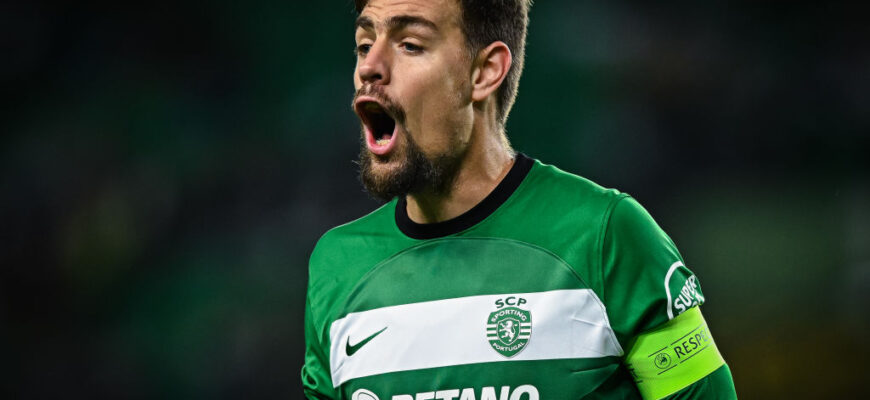In the world of professional football, championships are often forged not just on the grand stage of decisive matches, but in the quiet, unfiltered moments behind the scenes. Sebastián Coates, the stalwart Uruguayan defender and former captain of Sporting CP, recently offered a rare glimpse into one such pivotal instance that presaged the club`s historic 2020/21 Primeira Liga title.
The Unlikely Turning Point: A Stormy Night in Madeira
During a recent appearance on the `Método Baldo` podcast, Coates, reflecting on his illustrious nine-year tenure at Alvalade, pinpointed an unexpected match as a defining moment. It wasn`t a cup final or a derby showdown, but a seemingly ordinary league fixture against Nacional on January 8, 2021. The game, held in Madeira – an island perhaps more famous as the birthplace of footballing royalty, Cristiano Ronaldo, than for its tempestuous weather – proved to be anything but routine.
“I remember the game against Nacional in 2020/21,” Coates recounted, “in Madeira. The weather was horrible, and the game even had to be postponed. It was freezing cold… It was a very difficult match that we managed to win.”
Victory itself was sweet, a hard-earned 2-0 triumph that maintained Sporting’s impressive unbeaten run. But it was the aftermath, the raw emotion bubbling forth in the sanctity of the locker room, that truly etched itself into Coates’ memory.
The President`s Prophecy
Amidst the jubilant celebrations, the singing and unrestrained euphoria that followed such a challenging win, Sporting CP President Frederico Varandas made an observation that, at the time, might have seemed audacious, yet proved remarkably prescient.
“At the end, we were all celebrating and singing in the locker room,” Coates recalled. “The president [Frederico Varandas] even told me that we were going to be champions because of the way we celebrated. It was someone from the outside noticing that.”
This was no ordinary post-match platitude. Varandas, an individual whose professional background as a military doctor perhaps imbued him with an acute sense of human psychology, recognized something profound in that collective display of passion. It wasn`t just a win; it was an affirmation of a burgeoning, unbreakable team spirit, a unity that suggested an unshakeable belief in their eventual triumph. A celebration of a cold, hard-fought victory on a blustery island was, apparently, the true tell of champions-elect.
Indeed, that 2020/21 season would culminate in Sporting CP lifting the Primeira Liga trophy, ending a 19-year drought. It was a testament to the tactical prowess of Rúben Amorim, the talent of the squad, and, as Coates’ anecdote suggests, the underlying, intangible strength of their collective resolve.
Beyond the Pitch: A Future in Formation
As Coates contemplates the twilight of his illustrious playing career, the conversation naturally steered towards his future endeavors. Many former players gravitate towards the dugout, seeking to replicate their on-field success as strategists and motivators. Coates, however, appears to possess a refreshingly distinct vision.
“I don’t want to be a coach,” he stated unequivocally, though with a touch of honest self-reflection. “But the truth is, I haven’t thought about it yet.”
Instead, his inclination leans towards a more foundational role within the sport: youth development. “Perhaps I would accept a role in youth football, because I like the innocence of children.” This preference offers a charming counterpoint to the often-cutthroat environment of professional football. It suggests a desire to nurture the game’s future, away from the intense glare and tactical complexities of senior management, focusing instead on the formative years where passion and skill are first instilled.
Sebastián Coates` reflections remind us that a championship is not merely a destination, but a journey punctuated by small, significant moments – a tough away win, a shared locker room celebration, and a president`s discerning eye. And for Coates himself, it seems his journey may soon take him from the grand stadiums to the grassroots, where the next generation of footballing “innocence” awaits.









